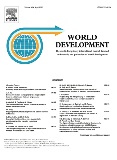
Leveraging social protection to advance climate-smart agriculture: An empirical analysis of the impacts of Malawi’s Social Action Fund (MASAF) on farmers’ adoption decisions and welfare outcomes
2020
This article assesses the interactions between participation in Malawi’s largest public works programme, the Malawi Social Action Fund (MASAF), and three widely promoted climate smart agriculture (CSA) practices.
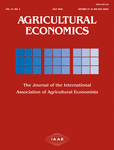
Rural in-migration and agricultural development: Evidence from Zambia
2019
While a considerable body of literature has developed in recent years around the drivers and consequences of rural out-migration in sub-Saharan Africa, relatively little work has been done to understand the impacts of migration into rural areas. We use nationally representative household survey data from Zambia to explore the relationship between rural in-migration and agricultural productivity outcomes in receiving communities.

Unconditional cash transfers, risk attitudes and modern inputs demand
2019
We estimate the effects of cash transfers on modern inputs demand, while isolating the role of output risk and risk preferences in channeling these effects. We use data from an RCT collected for the evaluation of Zambia’s Social Cash Transfer. We employ a moments-based method to estimate farmers’ risk attitudes from revealed preferences through production decisions and the impact of cash transfers on modern input demand.
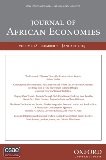
Shaping Cash Transfer Impacts Through ‘Soft-Conditions’: Evidence from Lesotho
2019
Cash transfer programmes have been shown to have positive effects on a variety of outcomes. While much of the literature focuses on the role of conditionality in achieving desired impact, this paper focuses on the role of ‘soft conditionality’ implemented through both ‘labelling’ and ‘messaging’ in evaluating the impact of the Child Grants Program in Lesotho, an unconditional cash transfer programme targeting poor households with orphans and vulnerable children.
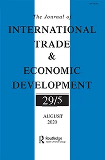
Stuck exchange: Can cash transfers push smallholders out of autarky?
2019
This paper focuses on the role of unconditional cash transfers in helping smallholders’ commercialization by overcoming barriers to trade from transaction costs. We use data from a controlled experiment for the evaluation of the Child Grant model in Zambia. We employ a Heckman model that allows us to capture the effects of the program on the propensity to engage in trade in both inputs and outputs markets as well as on the value of trade.
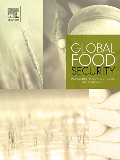
Sustainable agricultural intensification in an era of rural transformation in Africa
2019
Drawing on Boserupian and induced innovation principles, this review explores how the farm technologies and practices associated with integrated soil management and sustainable intensification may vary spatially according to the heterogenous ways in which economic transformation and population dynamics are influencing agricultural factor prices. Long-term trends in many areas are encouraging intensification of capital inputs, including fertilizer use.
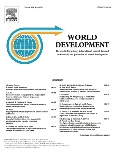
Heterogeneous impact of livelihood diversification on household welfare: Cross-country evidence from Sub-Saharan Africa
2019
This article investigates the empirical linkages between crop and livelihood diversification strategies, extreme weather events, and household welfare using a unique dataset that integrates harmonized, national representative household surveys and geo-referenced climatic information collected in Malawi, Niger and Zambia.
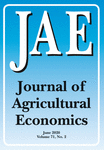
Do Medium-scale Farms Improve Market Access Conditions for Zambian Smallholders?
2019
This study is motivated by the need to understand how the rise of medium-scale farms in Africa is affecting small-scale farm households. Survey evidence over the past decade has shown a dramatic rise in the prevalence of ‘medium’ sized farms between 5 and 100 hectares, but smaller farms still constitute the vast majority of farms and rural households.
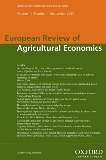
Heterogeneous impacts of cash transfers on farm profitability. Evidence from a randomised study in Lesotho
2019
We estimate the average treatment effect (ATE) of cash transfers on farm profitability by exploiting a randomised control trial for the evaluation Lesotho’s biggest transfer program. We also explore impact heterogeneity by unpacking the ATE into group-specific parameters.
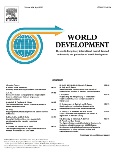
Causal pathways of the productive impacts of cash transfers: Experimental evidence from Lesotho
2018
This paper has the double aim to study whether unconditional cash transfers have an impact on farm production and to look into the causal mechanisms through which government transfers produce productive impacts. We use mediation analysis to identify the total effect of transfers on farm production and to isolate the influence of the labour channel from other transmission channels.
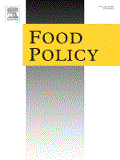
Knowing is half the battle: Seasonal forecasts, adaptive cropping systems, and the mediating role of private markets in Zambia
2018
This paper examines how smallholders living in regions where a drought is forecasted adapt their farm practices in response to receiving seasonal forecast information. The article draws on a unique longitudinal dataset in Zambia, which collected information from farm households before and after a significant drought caused by the 2015/2016 El-Niño Southern Oscillation.
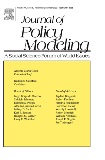
How much is too much: Does the size of income support transfers affect labor supply?
2018
Cash transfer programs pursue mainly protective objectives, but can also impact rural livelihoods by inducing investments in productive activities and changing household labor allocation. We adopt a continuous treatment approach to quantify how households’ labor supply responds to transfer size.
.tmb-th600x450.jpeg?Culture=en&sfvrsn=aae4f523_1)
Myth-Busting? Confronting Six Common Perceptions about Unconditional Cash Transfers as a Poverty Reduction Strategy in Africa
2018
This paper summarizes evidence on six perceptions associated with cash transfer programming, using eight rigorous evaluations conducted on large-scale government unconditional cash transfers in sub-Saharan Africa under the Transfer Project.
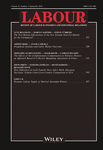
How Differences in Cash Transfer Sizes Affect Work Allocation Decisions: Evidence from Cross-Country Comparisons in SSA
2018
Over the past decade, several African governments have launched Cash Transfer (CT) programmes as part of their social protection systems, with the aim of reducing poverty. Such programmes can also have significant productive impacts.
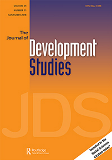
One Plus One can be Greater than Two: Evaluating Synergies of Development Programmes in Malawi
2018
This paper investigates the interplay between the Social Cash Transfer Programme (SCTP) and the Farm Input Subsidy Programme (FISP) in Malawi. We take advantage of data collected from a 17-month evaluation of a sample of households eligible to receive SCTP, which also provided information about inclusion into FISP.
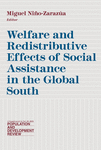
Cash Transfers and Gender Differentials in Child Schooling and Labor: Evidence from the Lesotho Child Grants Programme
2018
This article contributes to the literature on child well-being by examining gender-differentiated impacts on child schooling, labor, and time use by comparing impacts on outcomes for boys and girls across married male-headed households and de jure unmarried female-headed households, and by the sex of cash transfer recipients.
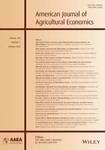
The Household and Individual-Level Productive Impacts of Cash Transfer Programs in Sub-Saharan Africa
2018
This article brings together evidence from seven experimental and non-experimental impact evaluations of government-run unconditional cash transfer programs in Sub-Saharan Africa (SSA). The unique focus on productive impacts of cash transfer programs was introduced into these evaluations by the From Protection to Production (PtoP) research project, itself part of the broader Transfer Project.
